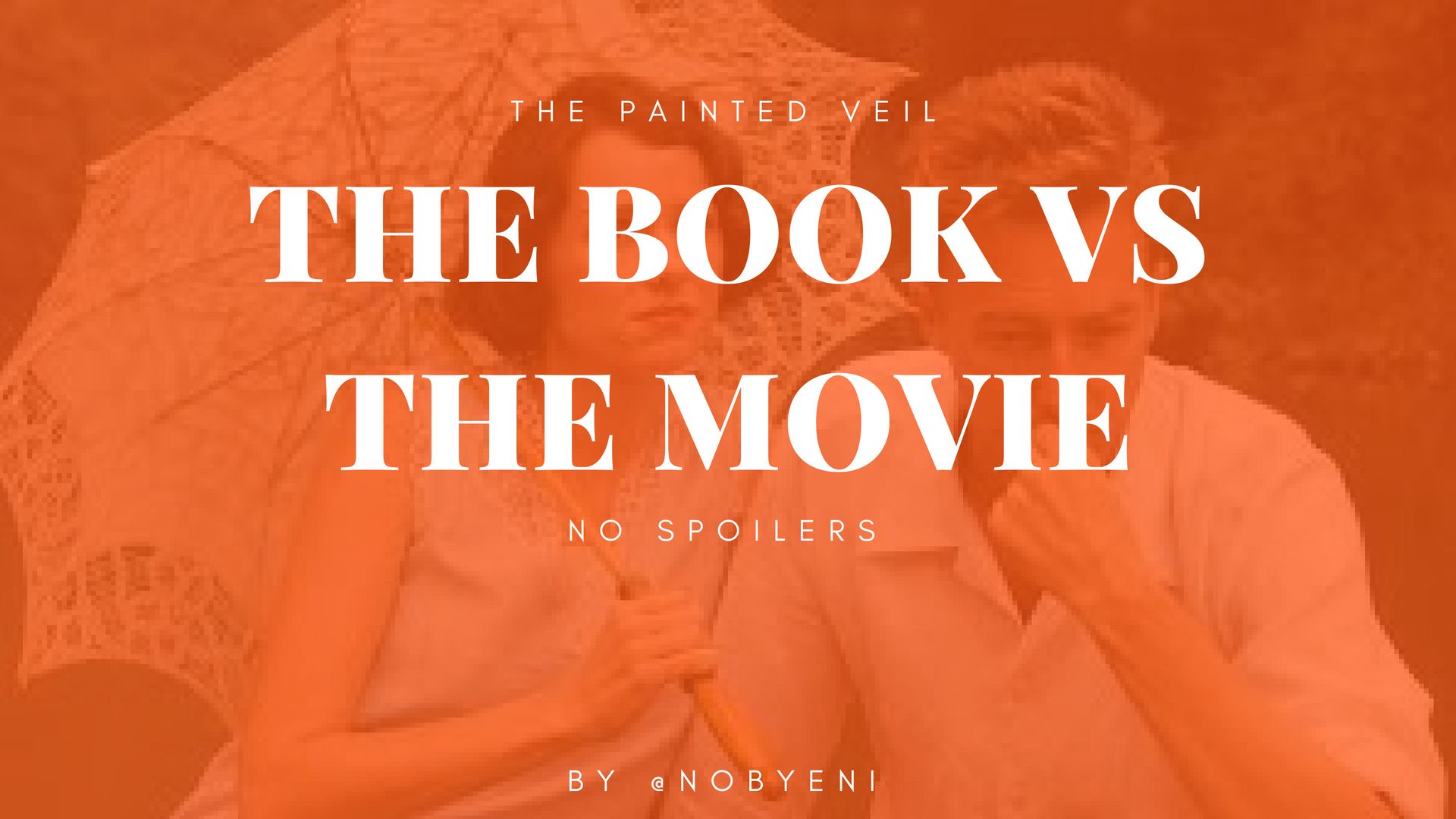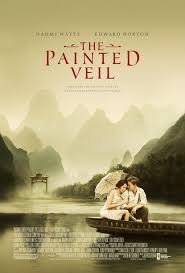
A Movie/Book Review: The Painted Veil by W. Somerset Maugham / Edward Norton & Naomi Watts
NOBYEN / 2018
Should you first read the book, or first watch the movie? Lots of arguments could be given for either side. I'm mostly on the side of the 'book-first', as I love reading and the great books should not be spoiled by images of someone else before you make your own. But not in this case...
I've tried not to put in any spoiler, as I'd encourage everyone to read this book/watch the movie.
The Painted Veil (book, 1925 - movie, 2006)

In this case, I watched the movie first. Actually I watched the movie many times. So often, that I often quote it to myself, or think about certain scenes as I am reminded by them because of small details in my daily life. You could say I really love the movie.
But as I was preparing to travel to Shanghai (see the post I wrote about it) I checked out which authors I might have known had lived in Shanghai, or China in general. And then I came across William Somerset Maugham (1874-1965). I decided this would be the perfect moment, travelling to Shanghai, 15 hours in a plane, to finally read the book 'The Painted Veil', first published in 1925, as it is set mostly in Hong Kong and China. And perhaps destroy my love for the movie. But I decided I should finally take the risk.
Book vs Movie
Even though I loved the movie, the book is SO much better. In the beginning I was truly enjoying the writing a lot, chuckling every now and then to read some of the lines I recognised from the movie... It is witty, nicely paced, introspective. But after a certain point I realised that the movie did take a lot of liberty, and possibly understandable. They put in a lot of extra scenes, a political angle and a completely different ending.
POV
Part of these differences have to do with the perspective the movie takes. The book is all about Kitty Fane (played by Naomi Watts in the movie), the female protagonist, whose thoughts and actions we follow throughout the book. We get to know her, and the story line plays out purely from her point of view. The movie doesn't do that. In the movie we also follow Walter Fane, Kitty's husband (played by Edward Norton) and you could say they are both equally important in the movie. In the book we hardly get to know what Walter does during the day, because he doesn't talk about it, which is part of Kitty's frustration, her inability to get to know her husband. In the movie this feeling is portrayed very well, but as audience of the movie, we do get to see what Walter does. His work, his experiments, his encounter with Chinese officials, his inventions to try to save a Chinese village from a Cholera epidemic.
A movie can also be made as a third-person-limited, the audience also seeing everything through the eyes of the protagonist, as is done in the book. But perhaps it is much harder, and it would be a very different kind of movie. Precisely because we get to follow Walter, we get to see much more action, more politics, more adventure you could say. Good elements for a movie. But I was very surprised and glad to see how the book doesn't need all that.
Lingering
This lingering on thought, on inactivity and of immersing oneself in emotions, as Kitty does in the book, makes for a very interesting read. Kitty's arc, her growth during these difficult times is all of a sudden the central aim of the book. As a reader, we don't get to ask ourselves what we think, whose side of this struggle we are on, who is the rational one. It is always Kitty -- although Kitty doesn't like herself through many pages, and as readers we gladly agree with her on that point.
This lingering, this pausing, this internal process is not completely lost in the movie. But the lingering is done as an atmosphere, we get to see beautiful shots of China, but we don't get the lingering frustration that the book so beautifully transmits.
The Ending (without spoilers)
Most profound difference is the ending. The book is far superior here, with a much more progressive ending than the movie gives us. The main transformational moment for Kitty is completely left out of the movie. Instead, in the movie, much more conventional and boring, predictive patterns of 'love concurs all' and 'you can change your life anytime you want to' are shown. It is nice to watch romantic scenes in a beautiful settings, sure, but it's very much unreal.
The book on the other hand is much more human, much more real. Following Kitty from inside her head, makes the reader feel that change and growth cannot be simply be 'thought', that it is hard to not fall back in patterns we despise but which are so normal to us. It doesn't have the 'let's make up and everything is forgotten' element, it shows how difficult life and human relationships are and the book does much more justice to these difficulties and the struggle to overcome them.
Two different stories
These differences between the original book and the movie might seem small, but they completely change the whole meaning of the story. The movie is a tragic love story. The book is about a personal struggle to redeem oneself in the face of hardship.
We could also say: the movie is plot-based: things happen, more things happen, more things happen, the end. And the book is all about the arc of the protagonist: something happens, how does she respond, what does she learn and how does she transcend what has happened?
Watch or read first?
So, to go back to my original question. Should you watch the movie first, or read the book first? In this case, I'd definitely recommend watching the movie first, as it will be lovely. And then you read the book and that will be even more profound an experience. If you'd first read the book, I think the movie would definitely disappoint.
STEEMIT

No comments:
Post a Comment